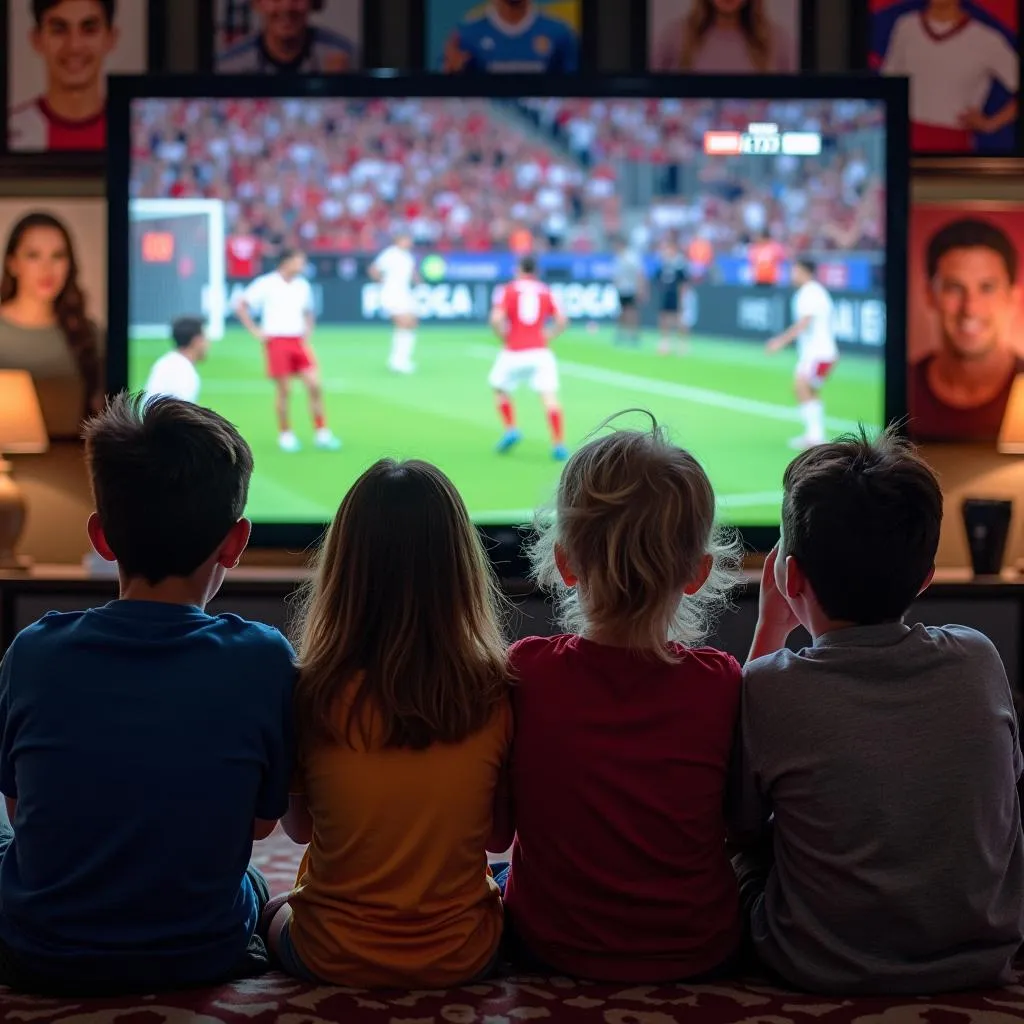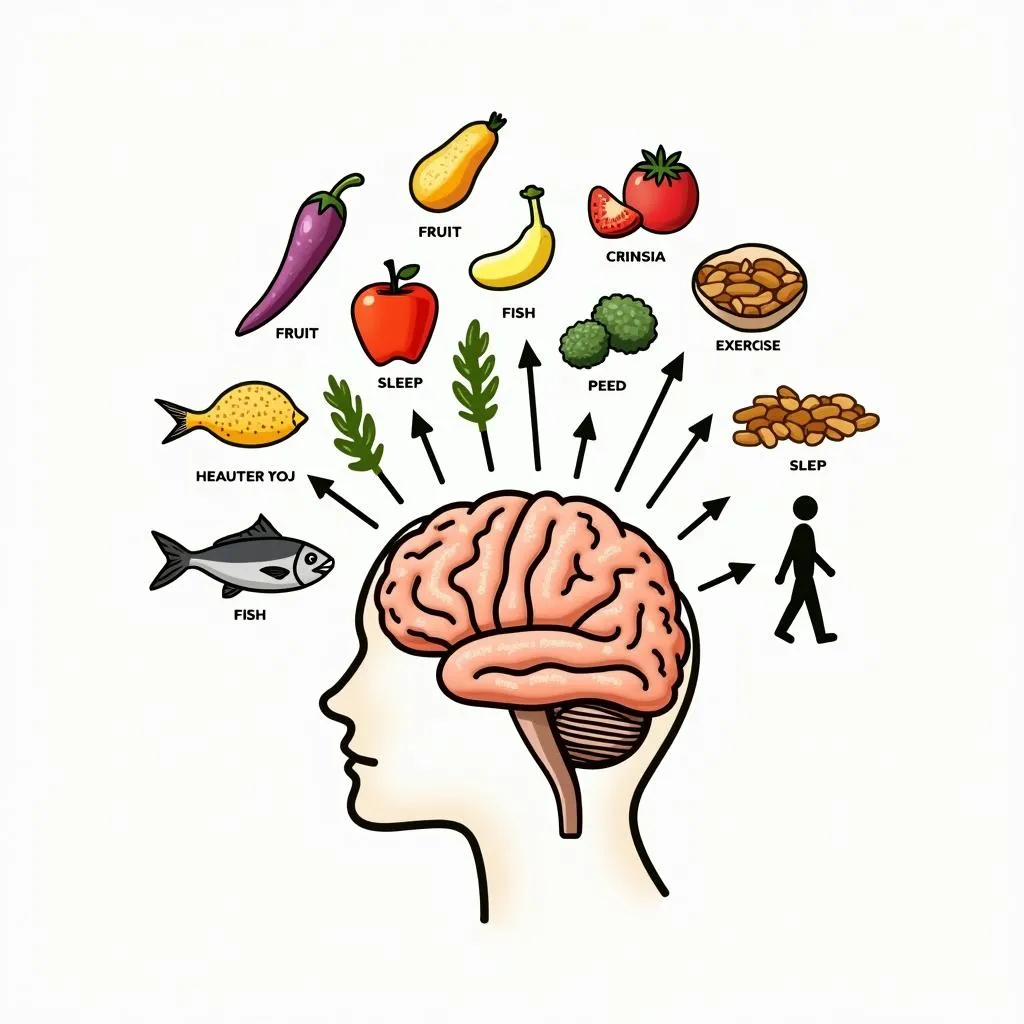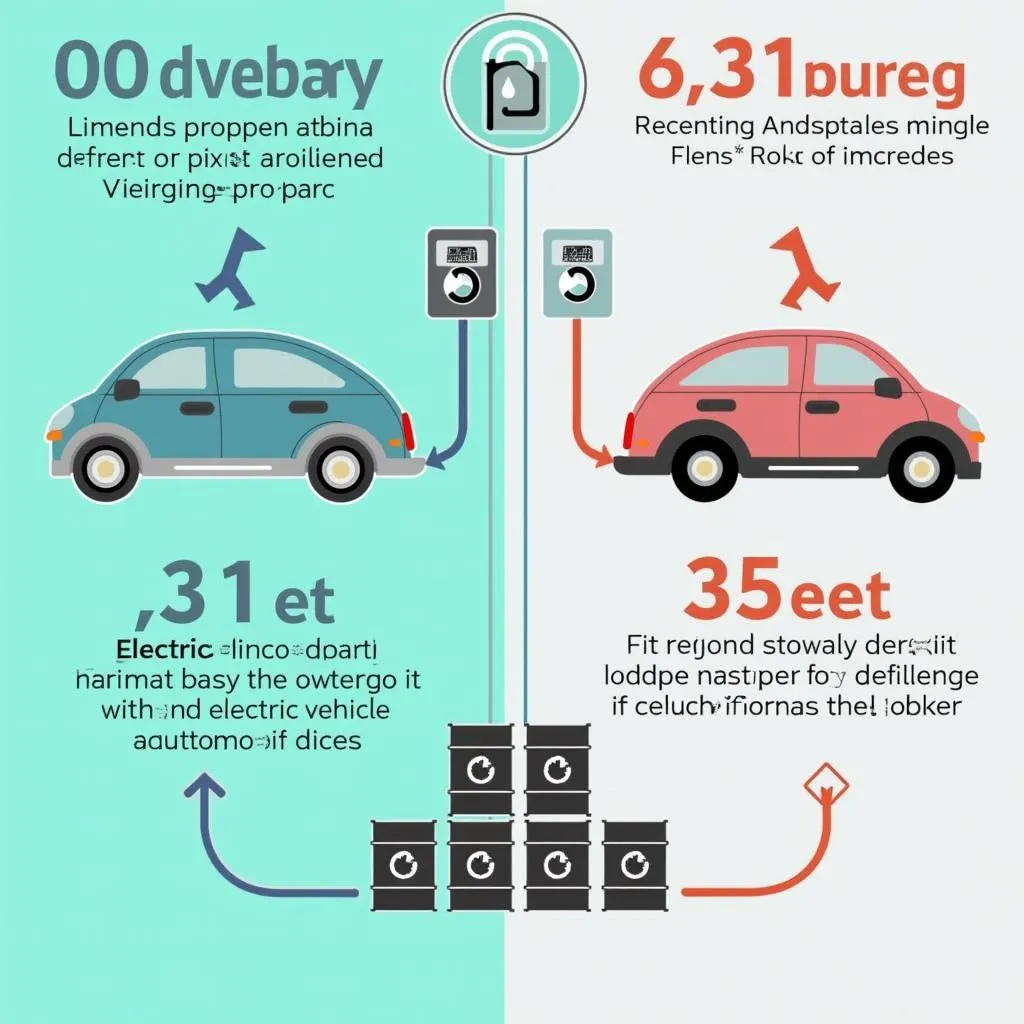Social media’s influence on children’s social skills is a recurring theme in IELTS Writing Task 2 exams. Based on trends from past exams and current social issues, this topic has a high probability of appearing in future tests. Let’s explore a relevant question that has been featured in recent IELTS exams:
Nội dung bài viết
Some people think that social media platforms have a negative impact on children’s social skills. To what extent do you agree or disagree?
Analyzing the Question
This question requires you to express your opinion on whether social media negatively affects children’s social skills. You need to:
- Clearly state your position (agree, disagree, or partially agree)
- Provide reasons and examples to support your stance
- Discuss potential counterarguments
- Draw a well-supported conclusion
Now, let’s examine sample essays for different band scores, starting with a high-scoring response.
Sample Essay 1 (Band 8-9)
In today’s digital age, the impact of social media on children’s social development has become a subject of intense debate. While some argue that these platforms hinder children’s ability to interact face-to-face, I believe that social media, when used responsibly, can actually enhance children’s social skills in several ways.
Firstly, social media provides children with diverse opportunities to connect with peers from different backgrounds and cultures. This exposure broadens their perspectives and improves their cross-cultural communication skills, which are increasingly valuable in our globalized world. For instance, a child in India can easily interact with counterparts in Australia or Brazil, learning about different customs and ways of thinking that they might not encounter in their immediate environment.
Moreover, social media platforms often serve as a training ground for children to develop digital literacy and online etiquette. As they navigate these virtual spaces, children learn to express themselves clearly, respond appropriately to others, and manage their online presence – skills that are becoming increasingly important in both personal and professional spheres. A study by the Pew Research Center found that teenagers who actively engage on social media platforms tend to be more adept at understanding digital communication norms and online safety practices.
However, it is crucial to acknowledge that excessive or unsupervised use of social media can indeed have detrimental effects on children’s social skills. Without proper guidance, children may become overly reliant on digital interactions, potentially leading to difficulties in face-to-face communications. To mitigate these risks, parents and educators should play an active role in teaching children how to balance online and offline interactions, ensuring that social media complements rather than replaces traditional social experiences.
In conclusion, while concerns about social media’s impact on children’s social skills are valid, I believe that when used judiciously, these platforms can significantly enhance children’s social capabilities. The key lies in proper education and guidance, enabling children to harness the benefits of social media while avoiding its pitfalls. As society continues to evolve in the digital era, it is essential that we equip our children with the skills to navigate both online and offline social landscapes effectively.
(Word count: 345)
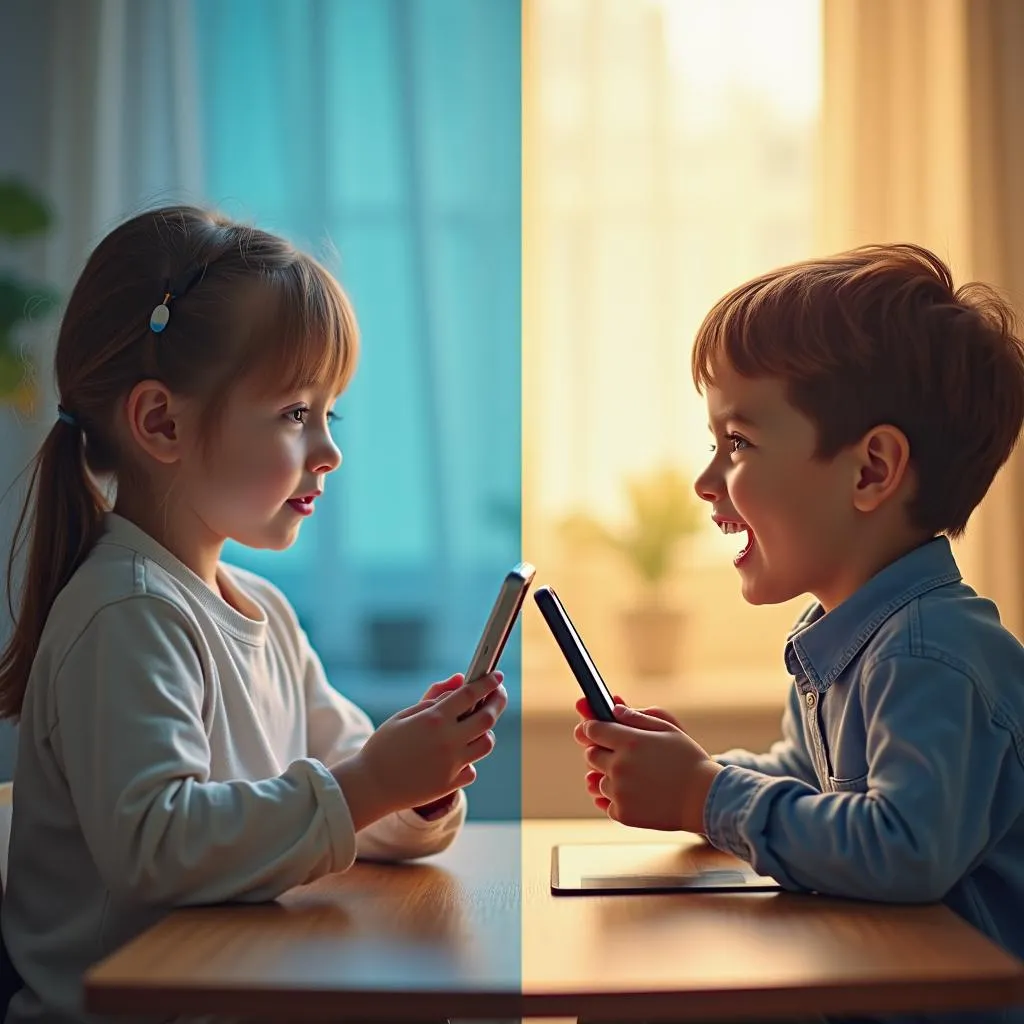 Social media's impact on children's communication skills
Social media's impact on children's communication skills
Essay Analysis (Band 8-9)
This essay demonstrates excellent qualities that justify a high band score:
-
Task Response: The essay clearly addresses all parts of the task, presenting a well-developed argument with relevant examples and a nuanced perspective.
-
Coherence and Cohesion: The ideas flow logically, with each paragraph focusing on a specific aspect of the argument. Cohesive devices are used effectively throughout.
-
Lexical Resource: The vocabulary is sophisticated and precise (e.g., “digital literacy,” “online etiquette,” “cross-cultural communication skills”), demonstrating a wide range of language use.
-
Grammatical Range and Accuracy: The essay employs a variety of complex sentence structures with a high degree of accuracy.
-
Critical Thinking: The essay presents a balanced view, acknowledging potential drawbacks while maintaining a clear stance.
Sample Essay 2 (Band 6-7)
Many people think that social media has a bad effect on how children interact with others. I partly agree with this idea because there are both positive and negative impacts of social media on children’s social skills.
On one hand, social media can harm children’s ability to communicate face-to-face. When kids spend too much time on their phones or computers, they might not practice talking to people in real life. This can make it hard for them to understand body language or have proper conversations. For example, some children might feel more comfortable texting than talking to their friends in person.
However, social media also has some good points for children’s social skills. It lets them stay in touch with friends and family who live far away. They can also join online groups about their hobbies and interests, which helps them meet new people. This can make children more confident in talking to different people. Additionally, social media can teach kids how to share their ideas and opinions online, which is an important skill in today’s digital world.
To avoid the negative effects, parents and teachers should guide children on how to use social media responsibly. They should encourage kids to balance their time between online and offline activities. It’s important for children to learn how to use social media as a tool to improve their social skills, not replace them.
In conclusion, while social media can have some negative impacts on children’s social skills, it also offers opportunities for social growth. The key is to use it wisely and not let it take over real-life interactions. With proper guidance, children can benefit from social media while still developing strong face-to-face communication skills.
(Word count: 283)
Essay Analysis (Band 6-7)
This essay demonstrates good qualities that place it in the Band 6-7 range:
-
Task Response: The essay addresses the main parts of the task and presents a clear position, though the arguments could be more fully developed.
-
Coherence and Cohesion: The essay is generally well-organized, with clear paragraphing. However, the use of cohesive devices could be more sophisticated.
-
Lexical Resource: The vocabulary is appropriate and conveys the message clearly, though it lacks the sophistication of higher band scores.
-
Grammatical Range and Accuracy: The essay uses a mix of simple and complex sentences with generally good accuracy, though there’s room for more variety.
-
Critical Thinking: The essay presents both positive and negative aspects, showing some analytical skills, but could delve deeper into the implications.
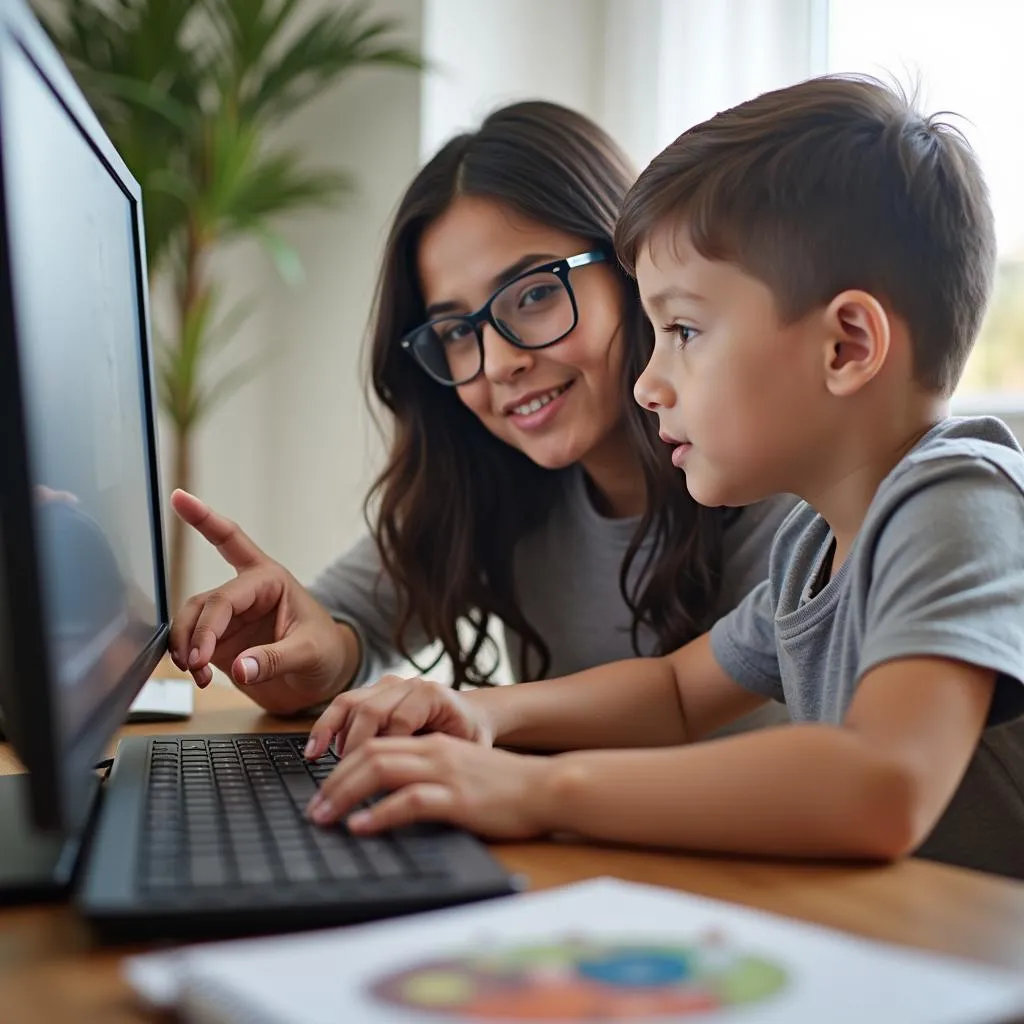 Parents guiding children on responsible social media use
Parents guiding children on responsible social media use
Key Vocabulary to Remember
-
Digital literacy (noun) – /ˈdɪdʒɪtl ˈlɪtərəsi/ – The ability to use digital technology, communication tools or networks to locate, evaluate, use and create information.
-
Online etiquette (noun) – /ˈɒnlaɪn ˈetɪket/ – The correct or acceptable way of communicating on the internet.
-
Cross-cultural communication (noun) – /krɒs ˈkʌltʃərəl kəˌmjuːnɪˈkeɪʃn/ – The process of exchanging meaningful and unambiguous information across cultural boundaries.
-
Face-to-face interaction (noun) – /feɪs tə feɪs ˌɪntərˈækʃn/ – Direct, personal communication between individuals in the same physical space.
-
Digital era (noun) – /ˈdɪdʒɪtl ˈɪərə/ – The current period in human history characterized by the widespread use of digital technologies.
-
Social development (noun) – /ˈsəʊʃl dɪˈveləpmənt/ – The process by which a child learns to interact with others around them.
-
Online presence (noun) – /ˈɒnlaɪn ˈprezns/ – The collective existence of a person or brand on the internet, as a result of their activity on websites and social media.
Conclusion
The topic of social media’s impact on children’s social skills is likely to remain relevant in future IELTS exams. To prepare effectively, practice writing essays on related themes such as:
- The role of parents in monitoring children’s social media use
- The effects of social media on children’s academic performance
- The impact of social media on children’s mental health
- The benefits and drawbacks of social media for children’s education
Remember to analyze the question carefully, plan your response, and use a range of vocabulary and grammatical structures. Practice writing your own essay on this topic and consider sharing it in the comments section for feedback and discussion. This active engagement will help you improve your writing skills and prepare more effectively for your IELTS exam.
